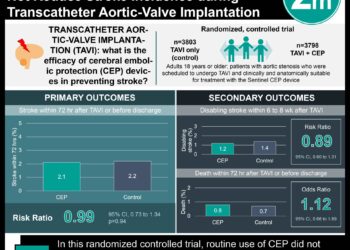[JAMA] Association of changes in clinical characteristics and management with improvement in survival among patients with ST-elevation myocardial infarction
Image: CC/GFDL. ST segment elevation in Leads II, III and aVF for an inferior acute myocardial infarction
Primer: Over the past decade we have seen decreases in mortality from ST-segment elevation myocardial infarction (STEMI). This has largely been attributed to increased access to and better use of cardiac reperfusion therapy, specifically percutaneous coronary intervention (PCI). Nevertheless, STEMI still causes significant morbidity and mortality, and the goal of this study was to examine potential determinants of improved survival in patients who suffer STEMIs, besides being treated with reperfusion therapy.
This [retrospective] study: Data were collected from four nationwide French cross-sectional registries, which were conducted 5 years apart from 1995 to 2010. Each registry involved data collection for a specified one-month period where consecutive patients who suffered STEMI or non-STEMI and were admitted to coronary care units (CCUs) or intensive care units (ICUs) were followed. In this analysis, however, only patients with persistent ST-segment elevation or new Q waves were assessed and the outcome was mortality at 30 days after the event.
30-day mortality dropped with each subsequent registry, from 11.3% (95% CI 9.5-13.2) in 1995 to 4.4% (95% CI 3.5-5.4) in 2010. Compared to 1995, patients suffering STEMIs in 2010 tended to be younger, were more often male, had higher body mass index (BMI), and were more likely to be treated at a university hospital or private clinic rather than a community/army hospital. Moreover, patients in 2010 were more likely to have certain cardiovascular risk factors (i.e., current smoking, obesity) and less likely to have histories of cardiovascular disease (i.e., MI, stroke or transient ischemic attack, heart failure, peripheral artery disease) compared to patients in 1995.
In sum: The findings regarding the progressive decreases in early mortality secondary to STEMI are quite consistent with findings in North America and other parts of Europe, and this is thought to be largely due to greater and better use of PCI. This study, however, did identify several other factors that may account for this reduction in 30-day mortality, including younger age and lesser likelihood of having a history of cardiovascular disease. Like any observational study, there are notable limitations to this analysis, including changes in registry catchment areas over time, limiting data collection to October/November in each year, and only enrolling patients who were admitted to CCUs and ICUs (i.e., patients who may have died prior to hospitalization or admission were not included).
Click to read the full report in the Journal of the American Medical Society.
© 2012 2minutemedicine.com. All rights reserved. No works may be republished or reproduced without written consent obtained from 2minutemedicine.com.




